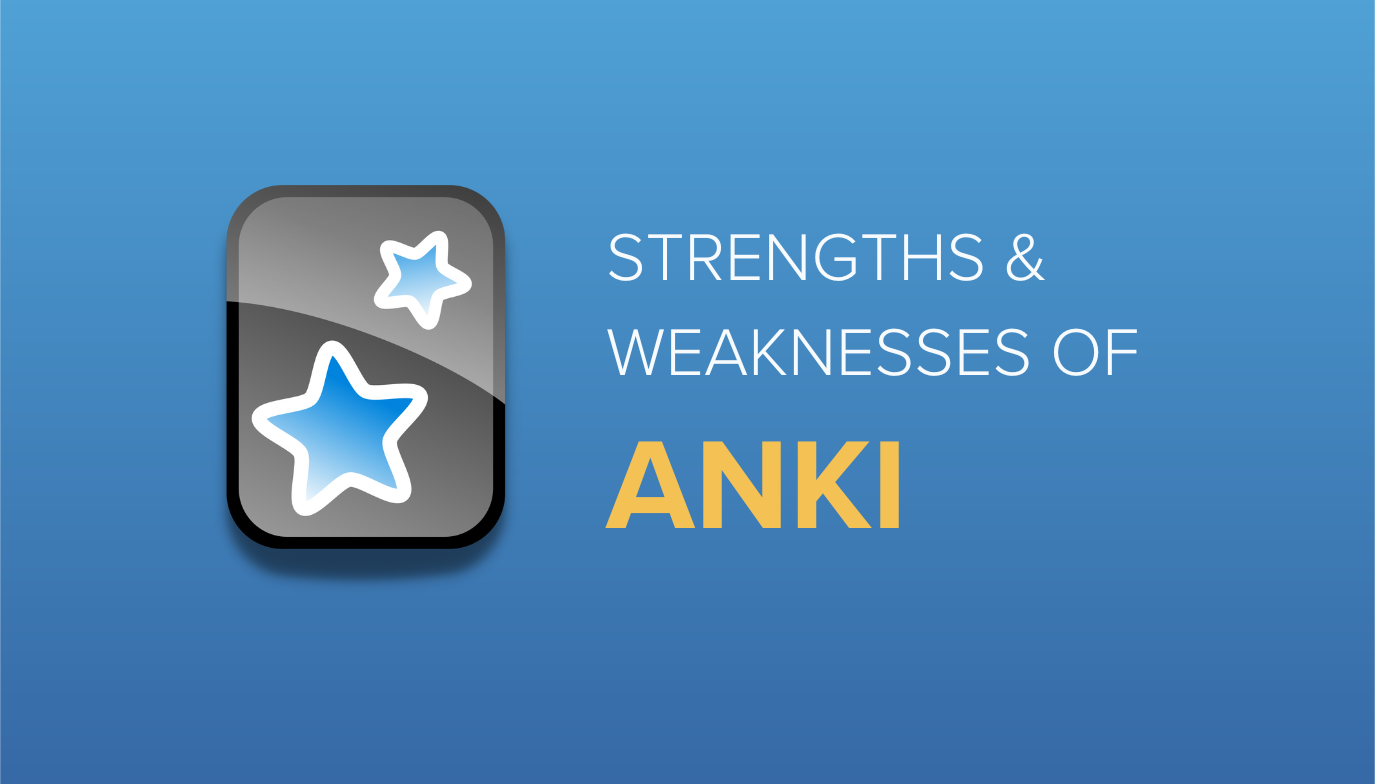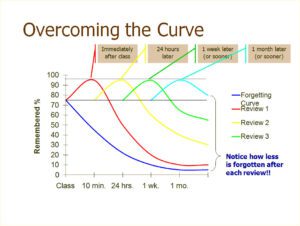Which USMLE Subjects Are Best for Anki?
- by
- Jan 11, 2024
- Reviewed by: Amy Rontal, MD

You can hardly set foot in any United States medical school without hearing about the popular flashcard tool called “Anki.” Anki is loved (and feared) by many, but is it a good fit for you? Compare these strengths and weaknesses of using Anki for your USMLE prep!
What is Anki?
Let’s start with the basics: Anki is an app/online platform that utilizes the age-old study tool of flashcards in a more clever and efficient way.
When you get a card “correct,” the system will file it away so you don’t need to waste valuable time on information you’ve already mastered. It’ll automatically retrieve that card and show it to you again in a few weeks or even months when you’re likely to start forgetting it. Meanwhile, the cards you get “wrong” will keep appearing in your deck until you consistently get them right.
This method, known as spaced repetition, is based on the work of Hermann Ebbinghaus, a 19th century German psychologist. He discovered what’s known as the “forgetting curve,” which states that humans naturally forget information soon after they learn it. However, if a person is repeatedly forced to recall that information, they can retain it and stave off the forgetting curve.
Dr. John Wittman, an English professor at Stanislaus State in California, illustrates this point in the graph below. The natural course of human memory is represented by the purple curve called Ebbinghaus:
 Image source: Class Teaching
Image source: Class Teaching
As you can see, knowledge rapidly declines over time. However, this curve can be disrupted if a learner repeatedly engages with the information at set intervals, such as immediately following class, after one week, etc.
Anki automates this process, so that a deck containing thousands of cards may only require the learner to answer 200 per day. This allows for more time-effective and efficient learning. With all of the information medical students need to memorize, it makes sense why the tool has become so popular!
Using Anki for USMLE: Strengths and Weaknesses
Now let’s dive into which types of learning Anki is good for versus when you should seek out other methods.
Note that my recommendations below are based on the assumption that you’re doing all of your Anki review cards every day. If you want to learn more about why this is important, how you should incorporate Anki into your overall study plan, and what data has been published on how effective Anki is for medical students, you should check out my related Anki FAQs article.
Anki Strengths: Memorization
Anki is excellent for helping a person memorize disparate facts. For example, my favorite use for Anki in medical school was a pre-made deck based on the Sketchy microbiology and pharmacology videos.
Microbiology
Microbiology is a lot of memorization, such as is listeria gram positive or gram negative? Which antibiotics fight MRSA? What are the risk factors for Chagas disease? This makes it perfect material for fact-based Anki cards. Even better, the cards had screenshots from each video featuring visual memory aids to further solidify the concepts.
Anatomy
Another great subject for Anki studying is anatomy. For example, if you’re trying to memorize the bones of the foot, you simply upload a diagram into the program. Then you obscure the labels and voila! You click through the cards until you’ve mastered the foot. Rinse and repeat for all the other body parts and you’ll ace your practical.
Of course, what I’ve just described doesn’t compare to the 3D experience you get when studying an actual donor body, but it’s a great adjunct to the traditional methods. There are many, many premade decks out there for anatomy, so I encourage you to find one you like and dive in rather than make your own deck.
Image-Based Subjects
Histology, dermatology, and other image-based subjects also tend to do well in Anki format!
Anki Weaknesses: Processes and Complex Systems
I’m the first to sing the praises of Anki and spaced repetition learning theory. In medical school I was one of the Anki fanatics who religiously completed my deck each day. (In retrospect, I could have been less regimented in my approach.)
Still, I believe that consistent Anki use made me feel better prepared for and more relaxed about my exams. It helped me perform better than I would have without it. And I still reap the benefits today as an internal medicine resident for whom concepts learned in medical school apply broadly to my daily work (more so than any other specialty)!
Physiology
That said, there are definitely subjects for which Anki is not well-equipped to be your main study tool. For example, physiology is a huge foundational subject in medical school upon which you’ll build the rest of your knowledge, no matter your eventual specialty.
Physiology requires a deep understanding of an entire system. Learning in one hundred separate flashcards how the kidneys work or using a huge number of cards to study the steps of the coagulation cascade is unlikely to be effective.
Physiology is a subject that demands understanding from beginning to end, which is nearly impossible to achieve with information tidbits alone. Therefore, I think physiology is best left to more traditional methods of learning like concept mapping or outlines.
Biostats
Biostats is another subject that’s not well-suited to Anki learning. You may have some success with memorizing biostatistics equations or types of research studies with Anki. However, when it comes to actually answering these questions, a deeper level of understanding and calculation is required. Best to leave that learning to the Blueprint question bank.
Ultimately, any subject that involves learning a multi-step process or complex system is ill-suited to Anki studying.
Final Thoughts
I’m a big believer in Anki, but it’s best suited for certain subjects. Consider using it for topics that require you to memorize lots of disparate pieces of information like microbiology or anatomy, but for other subjects that require a deeper level of understanding, I’d rely on more traditional methods.
Hopefully, this post gives you some good information you can use when deciding if Anki is the best way to approach a particular topic. Best of luck with your studying!
Have you hopped on the Anki bandwagon yet? If you still have some lingering questions about how much study time you should dedicate to Anki, if you should make your own cards, and if there’s any real data to support Anki as an effective study tool, check out my related article on Anki FAQs.
About the Author
I'm originally from the Northeast but attended college and medical school in Virginia. I just started residency in Internal Medicine this past year and am enjoying tutoring with Blueprint in my free time! I have always felt drawn to mentoring, especially when it comes to helping students like me who have no family in medicine to guide them. Now as a tutor at Blueprint, I’ve spent hundreds of hours teaching students at all levels. I think a lot about medical education and am excited to share my reflections on all things medical school and residency. In practice, I enjoy general medicine and as a bilingual physician find it especially rewarding to care for Spanish-speaking patients. When I’m not in the hospital, I enjoy salsa & bachata dancing, traveling to South America, dogs, and spicy food.









